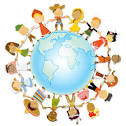Grief Shaming
Nov 24, 2015 by Janet Zinn, in Acceptance
, acts of kindness
, Beingness
, Change
, criticism
, Emotions
, Flaws
, gratitude
, grounded-spirituality
, Impatience
, Inner Peace
, kindness
, Loss
, Patience
, Peace
, relationships
, self realization
, self-acceptance
, Terrorism
, Uncategorized

Last week on Facebook I had changed my profile picture to one with a transparent French Flag on top of my face. When I was in college I had gone to school in Paris one summer studying Art History and French. The art history stayed with me, the French, not so much. It was a seminal summer for me. Memories surged after the bombings and I responded based on my relationship to my past and those in my present. Yet, shortly after that, so many people started writing pieces or making comments about how wrong it was to change our profile pictures when so many more had been tortured and killed in Damascus, Beirut, Jerusalem, Sierra Leone….. And the shaming began.

I would much rather see a way in which we can educate and inform rather than tell one another that what has moved us isn’t good enough, or is racist or wrong. We’re all served well to learn more. But nothing is accomplished when we’re shamed into feeling bad about what matters to us.

The irony is that often it’s in an attempt to create tolerance. Instead it creates a rift. “My way of seeing the problem is better than what you’re doing,” is the implication. And, though we see it online, we also hear it in our lives. There are so many times that clients will tell me that they’ve been criticized for the manner in which they’ve mourned a loss. If someone is relieved that a parent has died, they are considered cold-hearted. Alternatively, people who mourn for a year or two are asked when they’ll get over it. If someone loses a dear pet, eyes roll. Why are we so dismissive of how others handle loss? And, what have we lost as a result of that?


